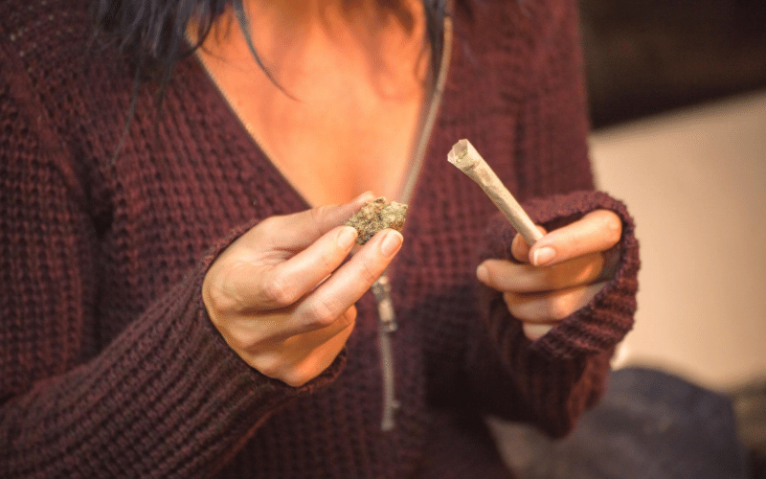A controversial practice among alcoholics is known as marijuana maintenance. As you can imagine, the early days of sobriety are incredibly challenging. Some people choose to substitute cannabis for alcohol as they try to stop drinking. But, does marijuana maintenance work? Isn’t this replacing one addiction for another? Let’s explore the ins and outs of this controversial practice.
What is Marijuana Maintenance?
Marijuana maintenance programs promote the use of cannabis while in recovery to reduce the cravings of the substances they’re addicted to, usually alcohol or drugs. To people addicted to highly dangerous substances, marijuana could seem like a less hazardous substance to use compared to alcohol. Many believe cannabis is less harmful than alcohol, as well.
Of course, today, people have access to medical marijuana. Not to mention, the rise of cannabidiol (CBD), which doesn’t produce mind-altering effects, has people wondering if cannabis might be the right alternative. Some people even suggest that marijuana could be the solution to the opioid problem.
Pros and Cons of Marijuana Maintenance
Supporters of marijuana maintenance argue that evidence on how effective programs such as Alcoholics Anonymous (AA) is or concise. Various studies point at how significantly different are the results of people in AA. Other studies suggest that the success of AA has to do with the frequency of meeting attendance more than the 12-step model itself.
Supporters say that those who cannot attend group meetings can benefit from cannabis maintenance programs. Those who believe in cannabis maintenance might also support the moderation approach rather than abstinence-based programs.
Pros:
- Some believe that unlike alcohol, marijuana can be used without the risk of death from binging.
- Marijuana also has fewer drug interactions than alcohol.
- Finally, cannabis has some health benefits in comparison to alcohol, including pain relief, enhanced moods, and stimulating appetite.
On the other hand, some people argue that these programs are based on the premise that cannabis is safe. However, without concrete evidence that proves this, those against marijuana maintenance believe the statements to support this program are unfounded.
The idea of alcohol recovery is to acknowledge that alcohol is harmful. Most alcoholics don’t have control over their impulses to seek alcohol. Based on this, it would mean addicts will have greater control over their marijuana use — which isn’t true. It also means that the self-awareness someone needs during recovery can wait until they no longer need another substance.
Cons:
- Around 10 to 20 percent of people who use cannabis do become dependent on it.
- Marijuana can lead to long-term impacts on someone’s health, including impairment of memory and cognitive skills, increased risk of lung conditions, and brain damage.
- Marijuana can act as a gateway drug, which might lead people with already addictive behaviors to use drugs like cocaine and heroin and start a path towards drug abuse.
Why People Choose Marijuana Maintenance
In general, people who smoke cannabis do so regularly. Many users develop a marijuana habit. As a result, if there is a day when a user does not have the pot, their mood may change. They might use it when they wake up like people drink coffee or smoke it at the end of the day to relax. The regular use of the drug creates a familiarity for them. This familiarity makes the drug seem benign.
But according to the Journal of Abnormal Psychology, people who stop using marijuana will start to have symptoms such as:
- Shakes
- Insomnia
- Irritability
- Restlessness
- Withdrawal symptoms
Downsides of Choosing Marijuana Maintenance
A study in the Journal of the Experimental Analysis of Behavior says it can be just as dangerous in recovery. Smoking marijuana makes the user calm and less inclined to do everyday tasks. When a person is in recovery and using marijuana, they may feel less determined to do things like attending group therapy sessions, working with a therapist, attending 12-step meetings, working with a sponsor, and other requirements.
“Similarly, marijuana has been known to trigger episodes of psychosis in vulnerable people, especially among those who struggle with mental health conditions. A study in Current Psychiatry suggests that marijuana alone can’t bring about a chronic disease like schizophrenia.”
Other Alternatives
Unfortunately, there isn’t a one-way street when it comes to addiction recovery. Part of treatment and recovery is learning how to live a life without the substance. There are many different tools people can use to help with healing, such as the 12-steps, holistic treatments, and more.
Usually, after someone completes alcohol and drug addiction treatment, they often move into aftercare programs to continue their journey. It depends on many different factors, and it’s a very personal choice. Even when marijuana continues to get approved for medicinal and recreational use, there’s no doubt that marijuana addiction is real.
If you or someone you know is struggling with substance use disorders, reach out to an addiction treatment facility today. At Lighthouse Recovery Institute, our substance abuse programs offer comprehensive, individualized treatment programs that cater to your unique needs. We will walk your addiction recovery journey by your side, every step of the way. And our team will be here to guide you through the early stages of recovery, offering the ongoing support you need to succeed.









